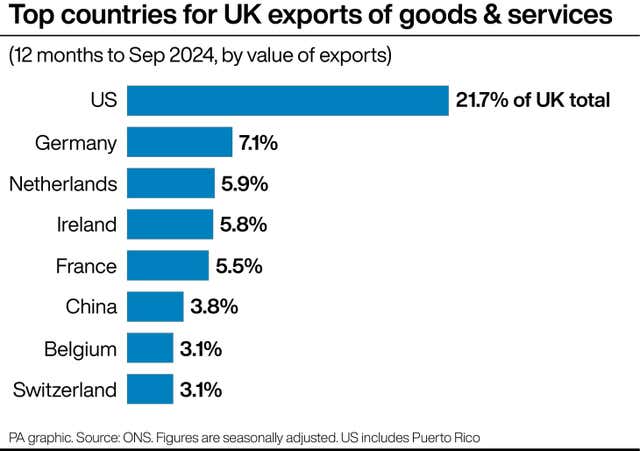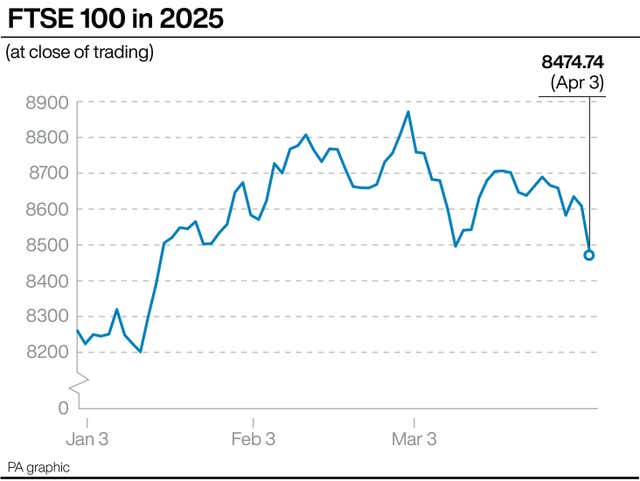UK Government mulls response to Trump’s tariffs as global markets slide
The UK has drawn up an ‘indicative list’ of possible retaliatory tariffs, but is unlikely to hit back this month.

The UK is braced for more market chaos on Friday as the Government considers its response to Donald Trump’s tariffs.
Ministers have insisted they will respond with “cool and calm heads”, but are keeping all options open, including the possibility of retaliatory tariffs on a range of American goods.
An “indicative list” published by the Government showed products that could be targeted, including bourbon whiskey, motorcycles, guitars and jeans.
But an immediate response is unlikely as Trade Secretary Jonathan Reynolds told MPs he would hold a four-week consultation on retaliatory action.
The Government still hopes for an “economic deal” with the US to secure some exemption from the tariffs, with Prime Minister Sir Keir Starmer promising businesses on Thursday that he would “fight for the best deal for Britain”.
But even with a deal, the global impact of Wednesday’s tariffs is expected to cause a significant economic shock to the UK.
The economic impact of the tariffs could already be felt, with stock markets tumbling around the world.

The FTSE 100 fell to a three-month low on Thursday after the news that British exports to the US would face a blanket 10% tariff.
In the US, the Dow Jones index suffered its worst day since 2020, falling almost 4% as analysts at Barclays said there was a “high risk that the US economy enters a recession this year”.
The Nikkei index in Tokyo lost 2.6% in early trading on Friday.
Setting off to attend a golf tournament in Florida on Thursday, Mr Trump told reporters he thought things were going “very well”, adding: “The markets are going to boom.”
Despite the UK being assigned the lowest tariff rate by Mr Trump, economists stressed that Britain still faced a “significant impact”, while the Prime Minister acknowledged there “will be an economic impact”.

Experts predicted that UK economic growth – already expected to amount to just 1% this year – could be up to 0.5 percentage points lower than expected over coming years as a result of the tariffs.
Thomas Pugh, economist at RSM UK, said he believed the tariffs would be “not far off” wiping out Chancellor Rachel Reeves’s fiscal headroom by the time she announces her second budget in the autumn.
Last week, the Office for Budget Responsibility warned that Ms Reeves’s headroom against her debt target would be at serious risk if tariffs were imposed.
If this proves to be correct, the Chancellor will face the prospect of imposing more spending cuts or tax rises if she does not change her fiscal rules.





